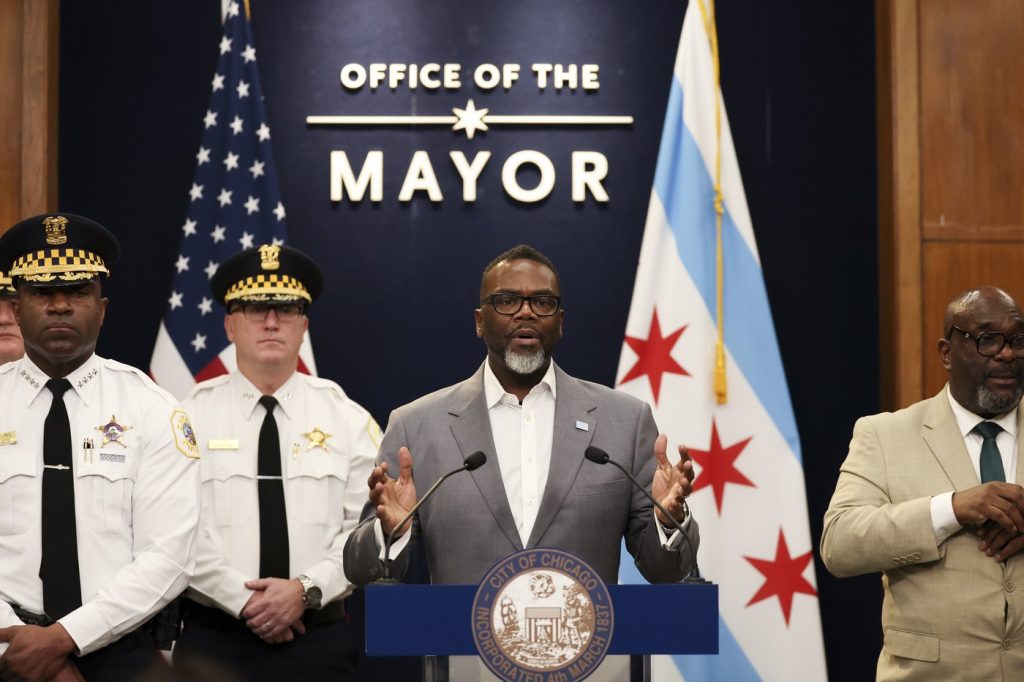As President Donald Trump recently labeled Washington, D.C., a "crime-ridden wasteland" that necessitated federal intervention, several mayors from predominantly Black-led cities have banded together to discredit his claims. They argue that Trump's narrative contradicts the improving crime statistics they have observed since last year, particularly following a spike in violent crime during the pandemic. Many cities have reported significant drops in crime rates, attributed to initiatives like youth engagement, gun buyback programs, and strengthened community partnerships.
Members of the African American Mayors Association aim to highlight these accomplishments and challenge the skewed perceptions fueled by Trump's comments. Van Johnson, the mayor of Savannah, Georgia, and president of the association, remarked on the importance of amplifying their voices against the misleading rhetoric that portrays urban areas as being overrun by crime. He emphasized that such views lack substantive evidence or statistical support.
After sending 800 National Guard members to Washington, Trump turned his attention to other cities, including Baltimore, Chicago, Los Angeles, and Oakland, which he characterized as "horribly run." Johnson noted that it was striking that all these mayors shared a connection, as they are either Black or perceived to be Democrats, adding to a sense of political targeting.
The federal government’s actions have ignited a determination among these mayors to present their strategies for maintaining public safety during a time of increased federal scrutiny. Trump's assertion that federal law enforcement intervention was necessary following a violent incident involving a Department of Government Efficiency employee was met with skepticism, especially as statistics from Washington's Metropolitan Police indicate a drop in violent crime following a post-pandemic peak.
Chicago Mayor Brandon Johnson reacted strongly to Trump's comments, highlighting a "historic progress" made in reducing homicides by over 30% and shootings by almost 40% in the past year. Meanwhile, Los Angeles Mayor Karen Bass described the federal intervention as a performative "power grab," citing a 14% reduction in homicides between 2023 and 2024.
In Baltimore, Mayor Brandon Scott reported historic decreases in homicides and nonfatal shootings, indicating a steady decline since 2022. This progress is largely attributed to a Comprehensive Violence Prevention Plan established under his leadership, promoting community violence intervention and services for crime victims. Scott accused Trump of exploiting crime as a divisive issue rather than genuinely seeking to curb violence, further criticizing the administration for slashing funding for community anti-violence initiatives.
In Oakland, city officials showcased significant drops in crime for the first half of 2024, including a 21% decrease in homicides and a 29% reduction in violent crime. Mayor Barbara Lee credited these declines to collaborative efforts with community organizations and crisis response services through the city’s Department of Violence Prevention. Responding to Trump’s portrayal of Oakland, she labeled it as "fearmongering."
Social justice advocates also support the mayors' assertions regarding declining crime rates and express concern that federal military intervention could hinder the progress made through community-driven approaches. Nicole Lee, executive director of Urban Peace Movement, emphasized that community initiatives have played a critical role in enhancing safety and expressed fears about the potential negative impacts of a militarized presence in their neighborhoods.
Despite the federal presence in Washington, which includes agents from multiple federal agencies and the National Guard, Savannah’s Mayor Johnson expressed a desire for true collaborative efforts from the federal government that focus on complex urban safety challenges, such as gun trafficking, rather than a militarized approach to municipal policing.
As the situation unfolds, mayors are closely observing how Washington Mayor Muriel Bowser navigates this unprecedented federal intervention. Amid growing tensions, Bowser has garnered praise for her dignity in handling the situation while opposing federal takeover efforts through legal avenues. Johnson remarked on the resilience of Black mayors, emphasizing their capacity to adapt and continue their efforts to foster safer urban environments despite the ongoing challenges.











